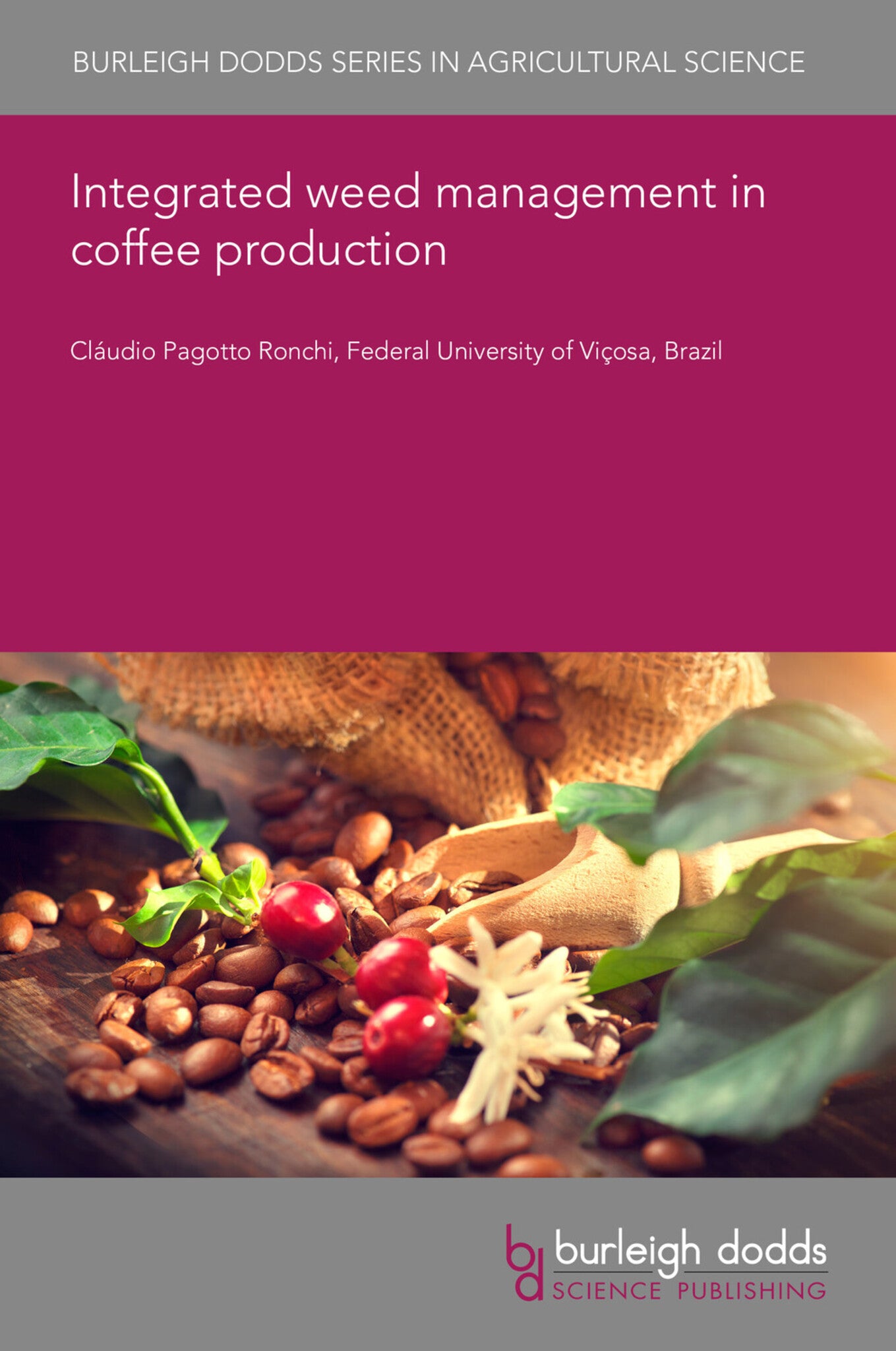We're sorry. An error has occurred
Please cancel or retry.
Integrated weed management in coffee production
Regular price
£25.00
Sale price
£25.00
Regular price
£25.00
Unit price
/
per
Sale
Sold out
Re-stocking soon
Coffee plants show very low initial growth rates and are usually grown in large-spacing inter-rows, which makes the crop highly sensitive to weed species competition. Therefore, the weeds must be e...
Read More

Some error occured while loading the Quick View. Please close the Quick View and try reloading the page.
Couldn't load pickup availability
- Format:
-
03 October 2022

Coffee plants show very low initial growth rates and are usually grown in large-spacing inter-rows, which makes the crop highly sensitive to weed species competition. Therefore, the weeds must be efficiently managed. Considering that coffee is grown in many different production-systems worldwide, the best integrated weed control practices in coffee farms vary significantly between different regions. This chapter thus discusses the effects of weed species on coffee plantations and the main integrated weed management practices that are applied in the crop, focusing on nonherbicidal methods. Emphasis is given to the width of strip weeding required to prevent competition in young coffee plantations without suppressing natural (or introduced) vegetation in the inter-rows. Sustainable weed control practices used worldwide like cover crops, grazing with ovines, and electrical discharge are discussed. Finally, some major aspects of weed control in Robusta (Conilon) coffee are also presented.

Price: £25.00
Publisher: Burleigh Dodds Science Publishing
Imprint: Burleigh Dodds Science Publishing
Series: Burleigh Dodds Series in Agricultural Science
Publication Date:
03 October 2022
ISBN: 9781801465991
Format: eBook
BISACs:
TECHNOLOGY & ENGINEERING / Agriculture / Agronomy / Crop Science, Food and beverage processing and engineering, TECHNOLOGY & ENGINEERING / Agriculture / Sustainable Agriculture, Sustainable agriculture, Agronomy and crop production

1 Introduction 2 Weed interference: yield losses and economic impact 3 Young coffee plantations: the most weed-sensitive crop phase 4 Integrated weed management 5 Weed control methods 6 Main aspects of weed control in Robusta coffee 7 Summary and future trends 8 Where to look for further information 9 References



